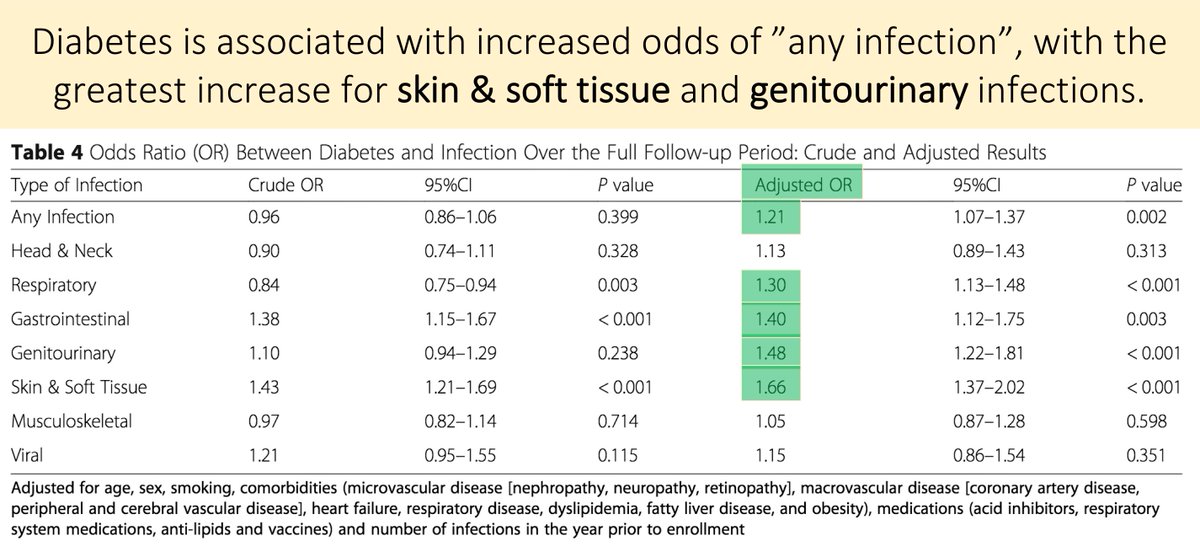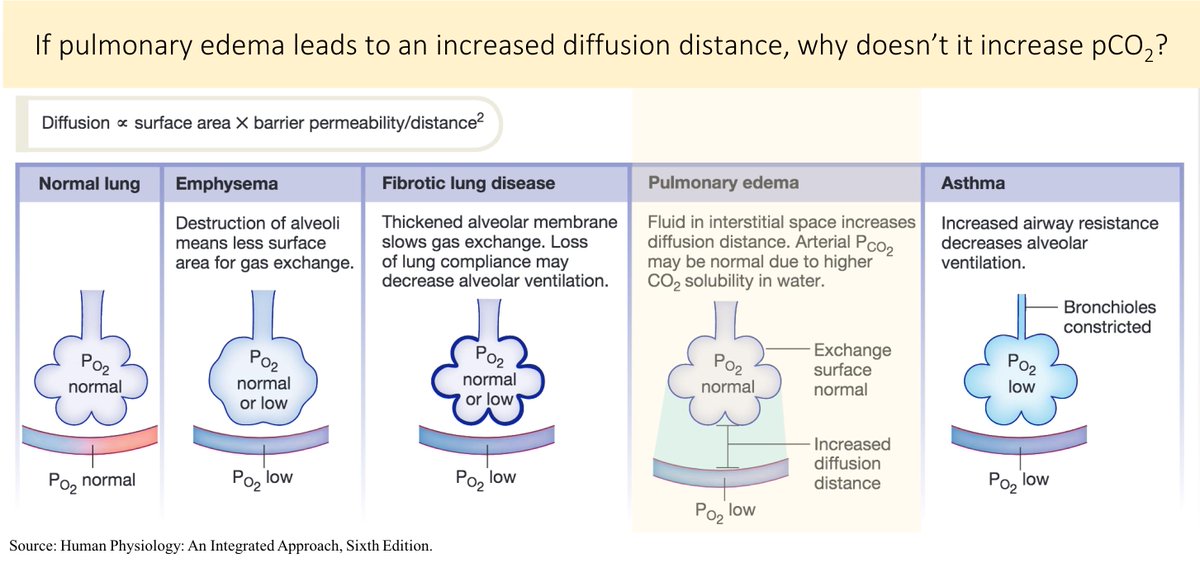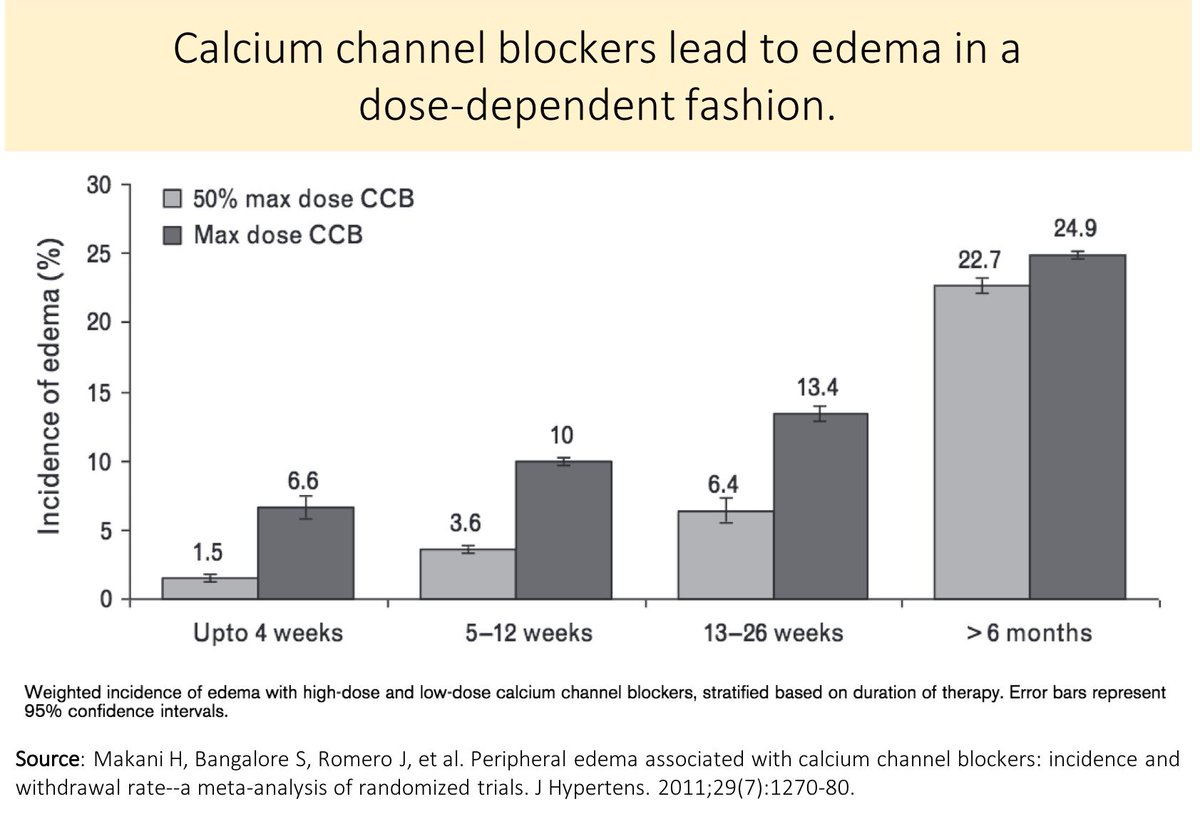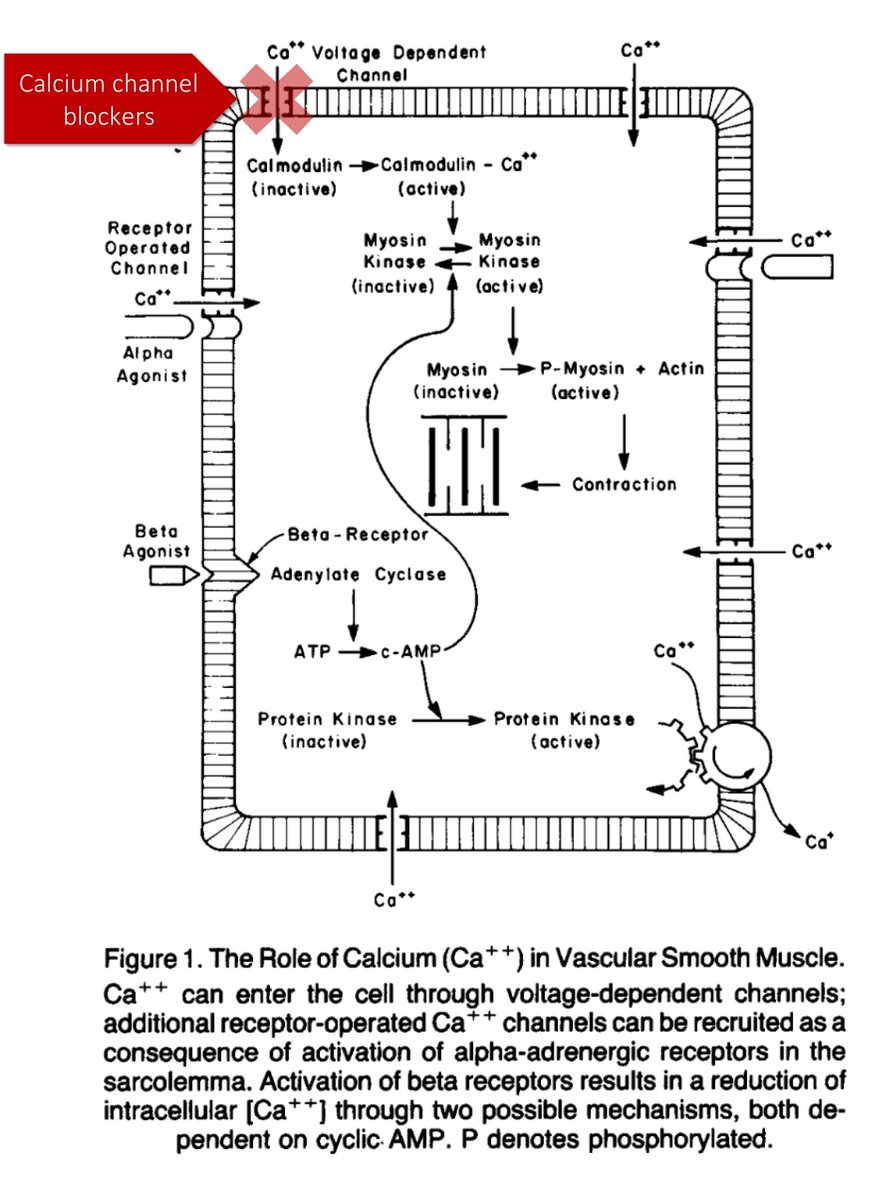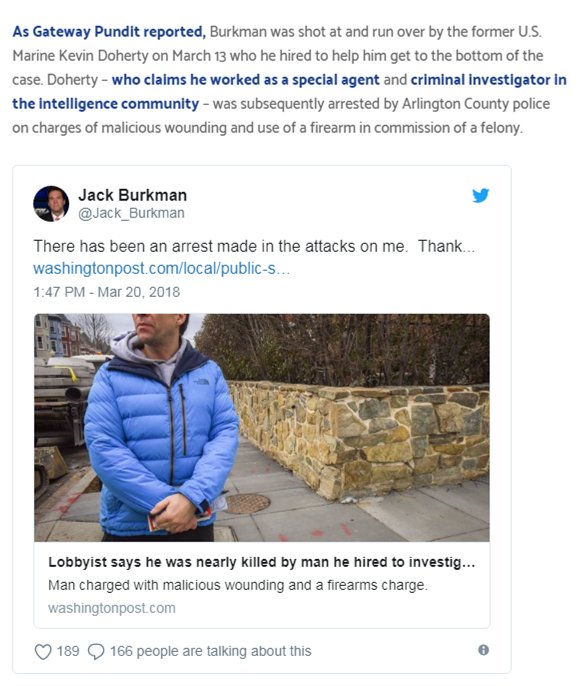Why makes cancer a hypercoagulable state?
I've have taken it for granted that cancer increases the risk of venous thromboembolism (VTE) but haven't given much thought to the "how" or "why".
The implications are fascinating...
Before answering this question, it's worth establishing that cancer is associated with an increased risk of VTE.
One case-control study found ORs 4.1-6.5, depending on whether patients were receiving chemotherapy.
ncbi.nlm.nih.gov/pubmed/10737280
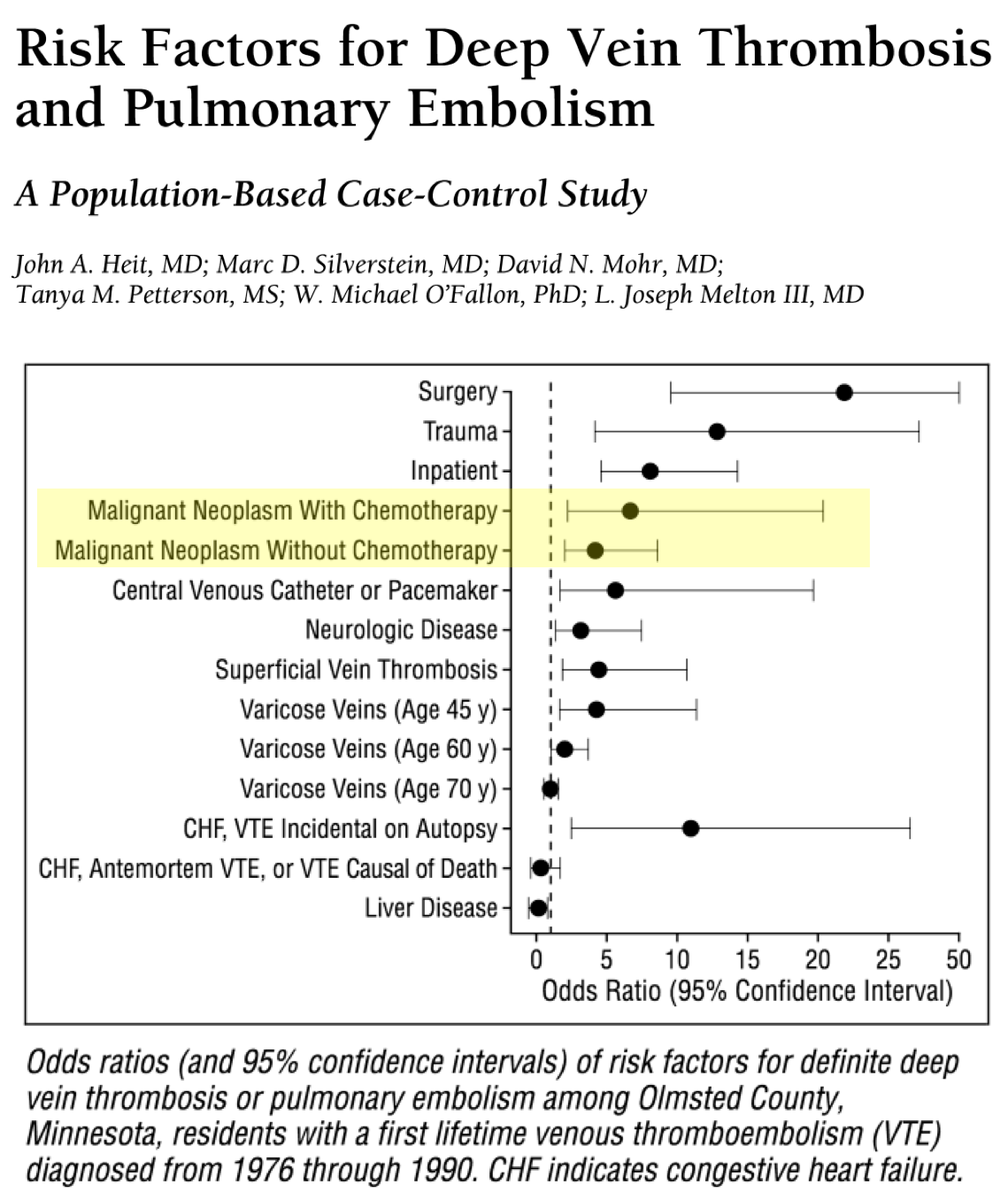
Ok, so what do you think?
Which of the following is a proposed mechanism for hypercoagulability in cancer?
There are many proposed mechanisms for the increased risk of VTE in cancer. For this thread, I’ll focus on one: tissue factor (TF)
ncbi.nlm.nih.gov/pubmed/15925818
One potential reason why TF may be increased in cancer relates to the inflammatory state.
Cancer cells interact with monocytes, resulting in a release of cytokines (e.g., IL-1, IL-6, TNF) which cause endothelial injury and release of tissue factor.
ncbi.nlm.nih.gov/pubmed/12853582
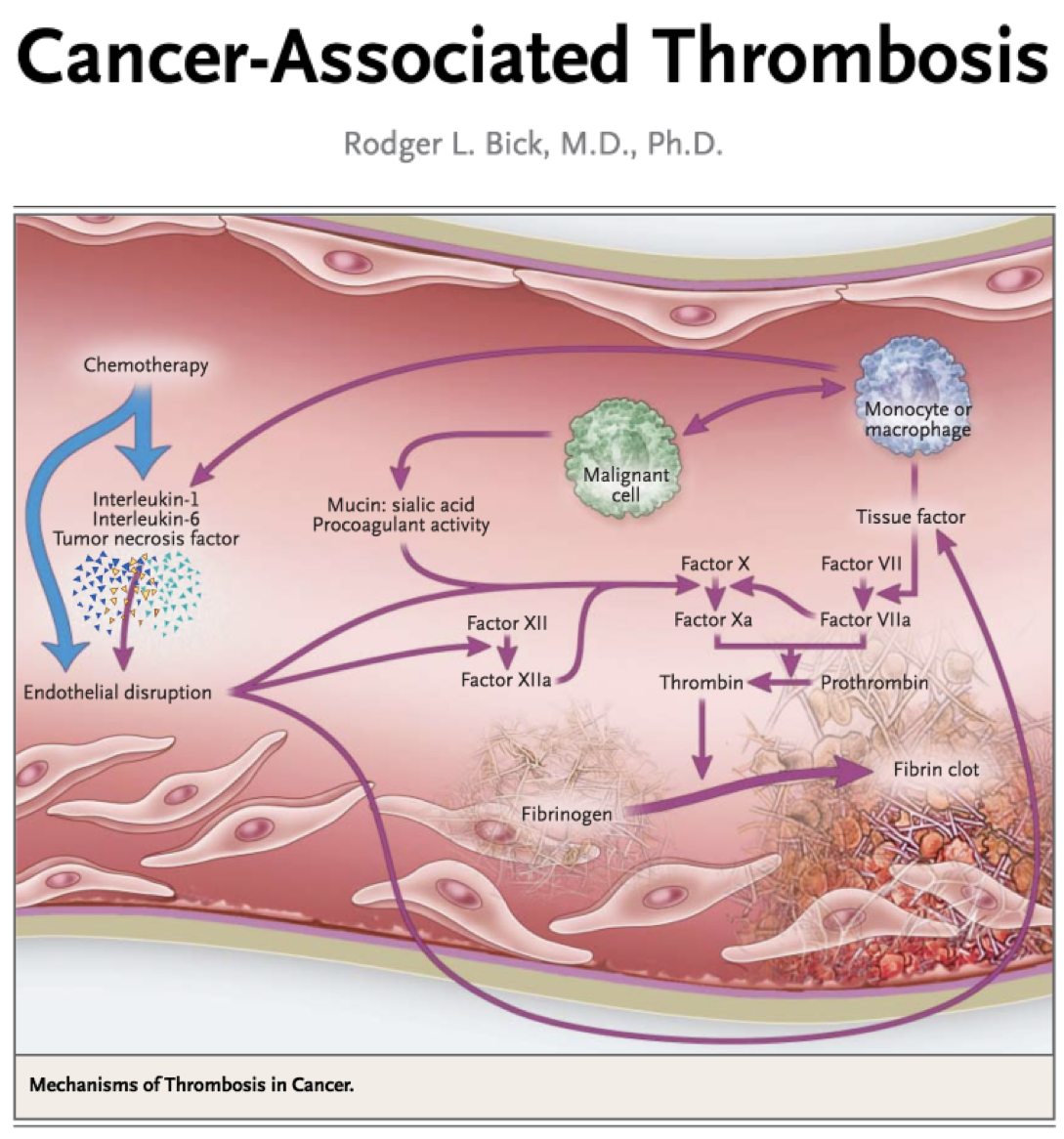
Also, some tumors show increased expression of TF. This increased expression has been linked to increased rates of VTE. The best example is pancreatic cancer where:
*26.3% with high TF expression had VTE
*4.5% with low TF expression had VTE
ncbi.nlm.nih.gov/pubmed/17504985
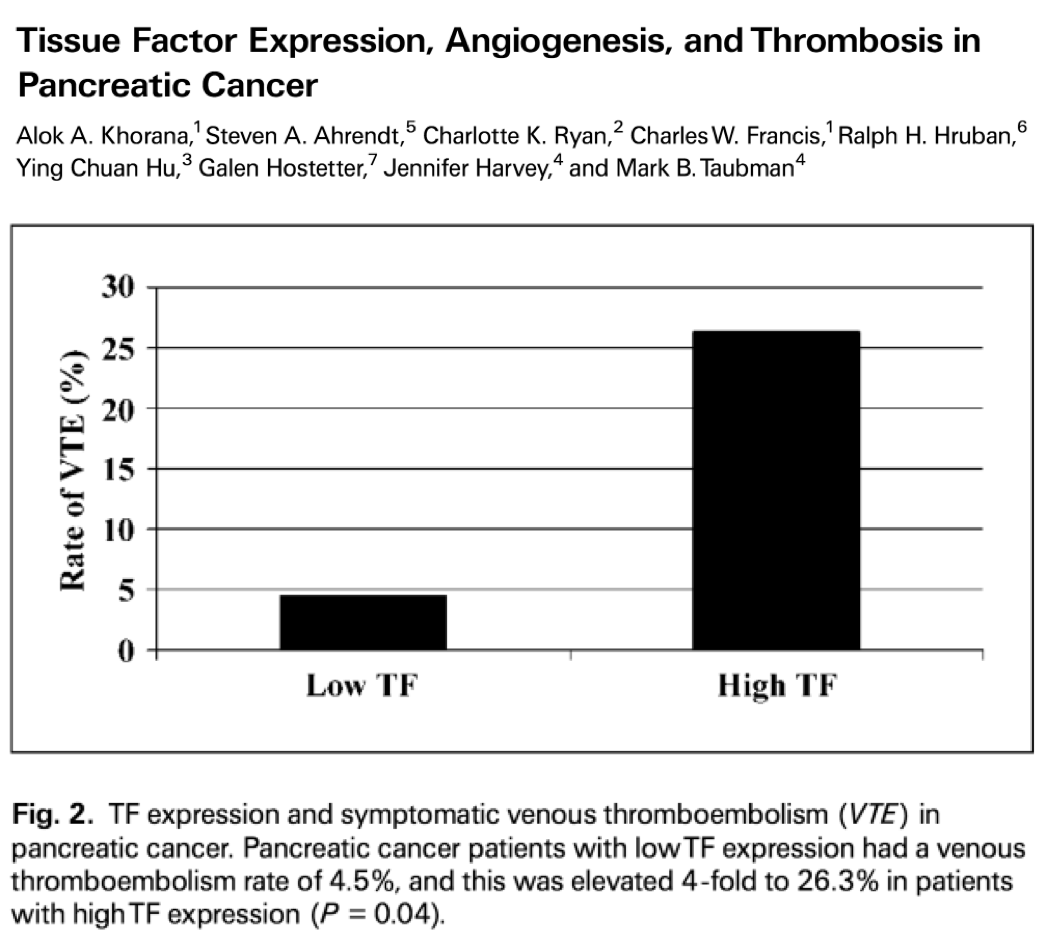
Finally, some cancers produce TF-bearing microparticles that lack the transmembrane domain and are less than a micron in diameter. The presence of these microparticles is associated with VTE with the 1-year incidence:
*34.8% if present
*0% if absent
ncbi.nlm.nih.gov/pubmed/19861441
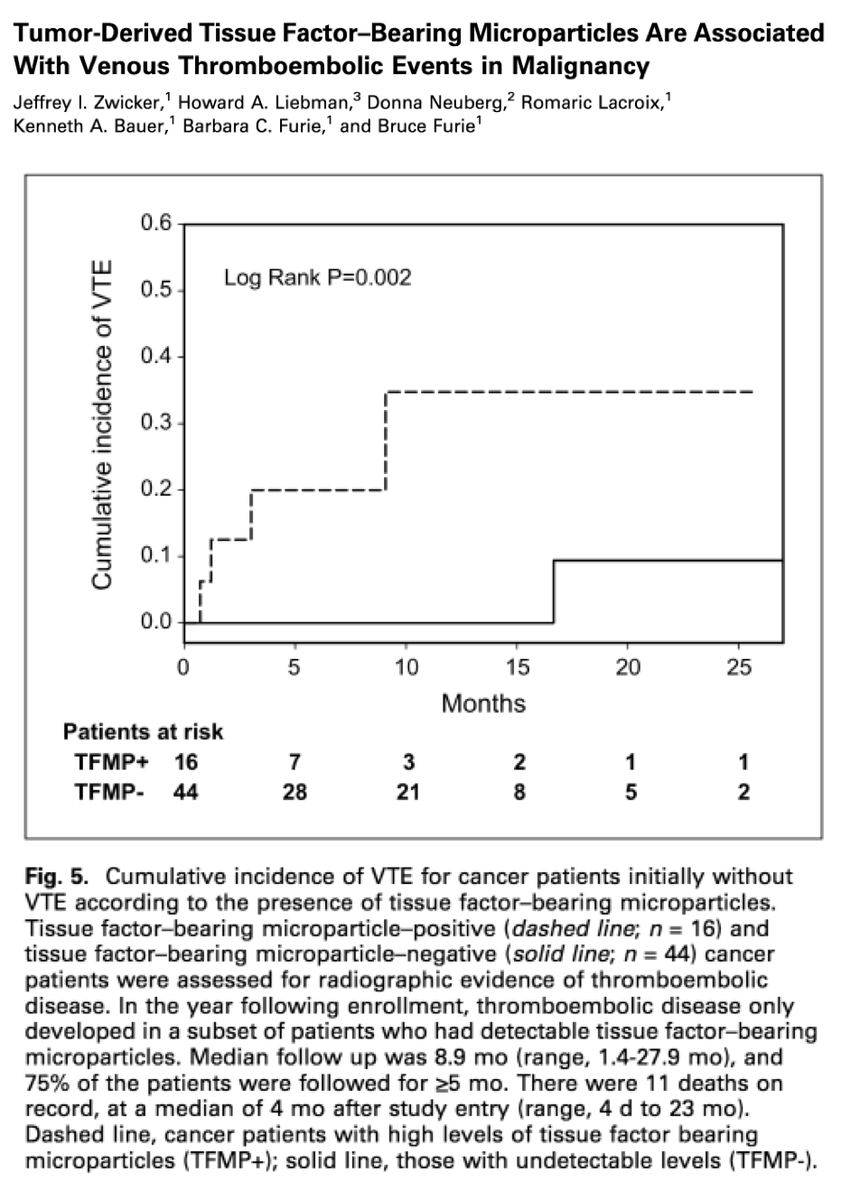
Before closing, let’s try to address the “why” question.
Why might tumors “benefit” from a hypercoagulable state?
In 1878, Billroth observed tumor cells within thrombus and related this to metastatic formation.
Later, it was proposed that fibrin might:
*protects tumor cells from the immune system
*facilitates microvascular entrapment needed for metastasis
ncbi.nlm.nih.gov/pubmed/1423819
Based on this, why not try anticoagulants as direct cancer therapy, not just to therapy to treat/prevent VTE?
Have you ever considered using an anticoagulant in cancer, not for treatment/prevention of VTE, but as direct anti-cancer therapy?
Neither had I. Amazingly, anticoagulants have been studied as cancer therapies!
And, in those known to have fibrin formation (SCLC), a benefit has been shown. One RCT of warfarin showed a median survival of:
*50 weeks (warfarin)
*24 weeks (control)
ncbi.nlm.nih.gov/pubmed/6257941
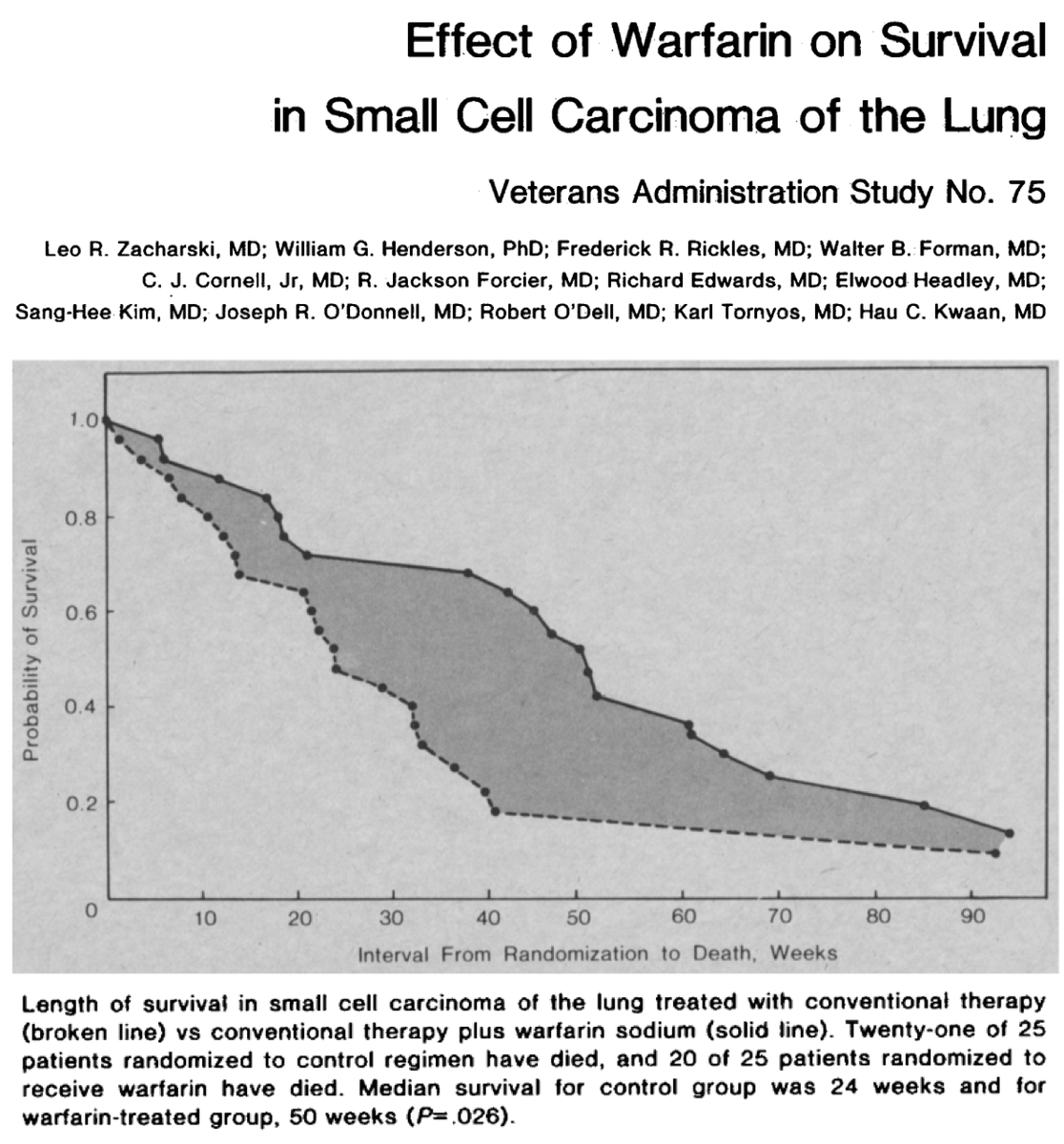
Heparins have also been studied. Overall, meta-analyses haven't shown consistent benefit and anticoagulants are not recommended as therapies to treat cancer directly.
This article provides a great review of the topic: clotcare.com/anticancer_ben…
Let's end with the original question:
Which of the following is a proposed mechanism for hypercoagulability in cancer?
(A typo in the FIRST tweet. Ugh.)


